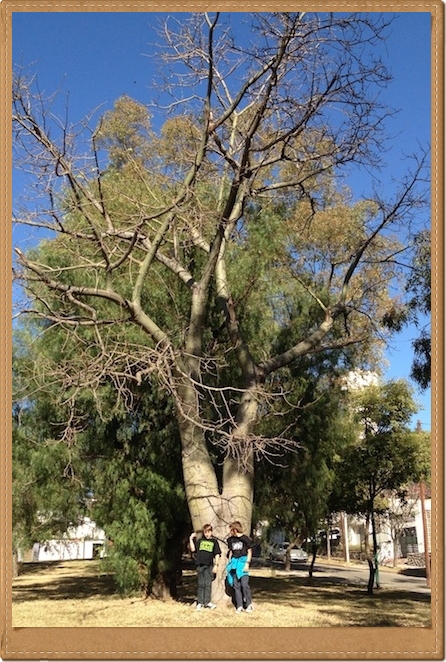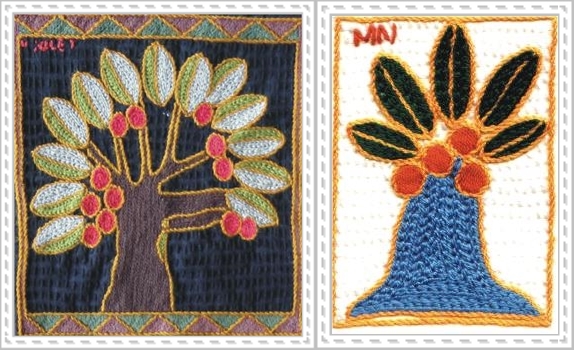Encounters with a family tree

When I was visiting friends in Cordoba, Argentina recently I came across this tree that looked so much like a baobab that I thought it must be some relation. When I looked it up, I found it was indeed part of the same family as the Baobab Malvaceae. Its scientific name is Ceiba speciosa commonly known as palo borracho which means “drunken stick” in Spanish. It is thought that baobabs (before they were baobabs) originated in South America and hence their relations are found here.
The palo borracho occurs in Argentina, Bolivia, Paraguay, Uruguay and Brazil.
Its trunk is bottle shaped, much like the baobab, but with swelling at the bottom of the trunk which makes it look like it may fall over, hence the name. It never gets as big nor as old as a baobab and is studded with thick thorns along its trunk which store water. Like the baobab there is chlorophyll just under the bark of the trunk which may allow it to photosynthesize when it does not have leaves.
The fruit and leaves also look like that of baobabs, but the fruit does not have the wonderful nutritious content our trees have. The palo borracho fruit are filled with masses of fluff that looks like cotton. Meeting it unexpectedly while out exploring was almost as exciting as meeting a far distant member of my own family tree!



